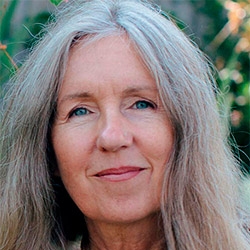
Search Results: power
-
When we are transparent about our concerns, brainstorm solutions together, and look towards making a decision with the other person, we can increase understanding, partnership, and mutual support. This invites people to work on the same issue from the same direction, collaboratively seek solutions, and tap a deeper wisdom. In the end, the future survival of our species depends on this kind of active interdependence.
-
When bullying occurs, if we do our own healing, our brains can become more sharp and present and willing to take action to connect and to begin to shift and mitigate the harm that trauma does in our world. We can reduce trauma inflicted upon others when we recognize the patterns of abuse and bullying, hold zero tolerance for it, bring in support for both sides of the conflict, and take action to effect systemic change. Read on for more.
-
This pandemic is an immense opportunity, and a dire catastrophe in the making. It’s a crisis within many planetary crises — during which, our habits as individuals, and as a collective, are challenged because they don’t sustain us. Now we are pushed to respond freshly and join forces in ways that seemed impossible before.
-
How can we hold love, understanding and compassion -- and still confront people about the harmful impact of their actions, hold them accountable, take action, speak truth and advocate for change... all in a manner fully aligned with our values and vision? Read on for how we can do accountability; what kind of action we take and with what motivation; and what our movements for change can look like from this lens.
-
When supporting someone with less privilege, first check with them how you can support. If you're reacting more strongly to their undesirable experience than they are, this then shifts the dynamic so that they're setting aside what they want to attend to your feelings and needs - this may become work that they didn't sign up for. Read on for what to do instead to support more equity.
-
This trainer tip suggests ways to transform blame in to personal power. He suggests having multiple sources of support and multiple pathways to achieving the outcome you want, to allow more room to hear a "no". Read on for more.
-
For this exercise choose a situation in which you have said a “yes” to someone‛s request but you didn't experience your “yes” as given freely or joyfully. Then explore judgements, feelings, needs, and alternate strategies that come up in relation to your “yes”, your “no”, and in relation to what the other person might be experiencing.
-
How can we create a partnership and eye-level dialog with people who we perceive to have more power? In this session, we will create a practice of humanizing ourselves and others through empathy, practicing scary honesty, and making requests that serve both persons’ needs
-
Struggling to say "no"? Here are ways you change your adjacent mind patterns. First, note the differences between those who respect boundaries and those who often don't. Second, review situations in which you lost track of your choice. And rehearse what it would sound, look, and feel like if you kept connection to your choice. Third, seek validation of your experience - from a grounded and mindful (non-reactive) state.
-
When we have privilege, we can have access to resources resulting from legal or social norms related to membership in a group -- independent of any (in)action, awareness of the disparity, the potential benefits to us, or the costs to others. Unhelpful ways of engaging with privilege are: denial/invisibility, guilt/shame, defensiveness, and entitlement. Helpful ways of engaging are: owning privilege, learning about privilege, opening to feedback, and stewarding privilege for benefit of all. To be helpful we need to engage with necessary (rather than unnecessary) discomfort.
-
The word "privilege" signifies the benefit to the person having it, and the relationship between that person’s benefit and others' lack of benefit. When privileged, there are incentives to not see this interdependent link. For instance, it's easier for the wealthy to think of the poverty of many and the wealth of some are unrelated. If the wealthy want to keep wealth they would need to continue with approaches rooted in this separation.
-
Certified CNVC trainer Roxy Manning, Phd, answers a question: how to create a safe space for a first time group working on power and privileges ?
-
Most people want to punish perpetrators of sexual violence. Unfortunately, punishment doesn’t lead to lasting widespread change. Rather, we can identify root causes and conditions that sustain violence. That means shifting from individual to systemic lenses, and from punitive to restorative responses. It means collective learning about how such acts are nurtured and persist. This can reduce the chance of it happening again.
-
Reveal what's in your heart before asking a question to help build trust, especially if you're in an authority figure. Otherwise, your question may sound like a demand, blame, trap, intrusion or accusation, and it may elicit a defensive response. If you get a "question" like that, give them empathy. Read on for reflection questions to see how our revealing and our withholding impacts our relationships with others and with ourselves.
-
Even groups and organizations with noblest visions can slide into cult-like swamps. The reasons that bring people together are irrelevant; whether it's politics, spirituality, activism, art… a hidden hierarchy, plus dominance and submission dynamic can sprout, and beliefs that “we, our leader, and our path is better than others, we have all the answers”. As a member it can be hard to see. Here are signs of cult mentality and ways to assess.
-
When you say yes, check if you are saying it out of submission. Similarly, when you say no, are you saying it genuinely or out of rebellion? Marshall Rosenberg calls this a loss or erosion of goodwill which can destroy or undermine relationships. In this video, Rachelle Lamb shares how submission and rebellion in communication can diminish your power.
-
Join CNVC Certified Trainer Eric Bowers in journeying through the world of Interpersonal Neurobiology (IPNB) as he expands on the theories and tools from his book Meet Me In Hard-to-Love Places: The Heart and Science of Relationship Success. You'll discover why IPNB and NVC complement each other so well, especially in the powerful practice of Somatic-Based Resonant Empathy.
-
- Gain a deeper insight into the spiritual practice of NVC as taught by Robert Gonzales
- Enhance your emotional intelligence and self-compassion
- Learn compassionate self-talk techniques and cultivate more inner peace
- Approach change with a peaceful mindset, rather than anxiety and fear
-
- Gain a new, surprising, and exciting connection to yourself that will enable you to both deepen the sense of power in your life and actualize everything you've always dreamed of…
- Experience being fully present in the world — despite your habits — so that you'll always be connected to your inner center and thus be able to choose at any given moment where to take your life…
- Understand how to create within yourself (and others!) a sense of flow and love, making your life much more beautiful and exciting…
- Learn how to open up in your relationships in ways you never thought would be possible, creating an entirely different closeness and intimacy in your life…
-
- Strengthen embodied awareness
- Integrate inner and outer worlds to create a connecting "corridor"
- Identify projected images that prevent connecting
- Embrace fear and transform reactivity
- Create a support network where you can express and be heard



















